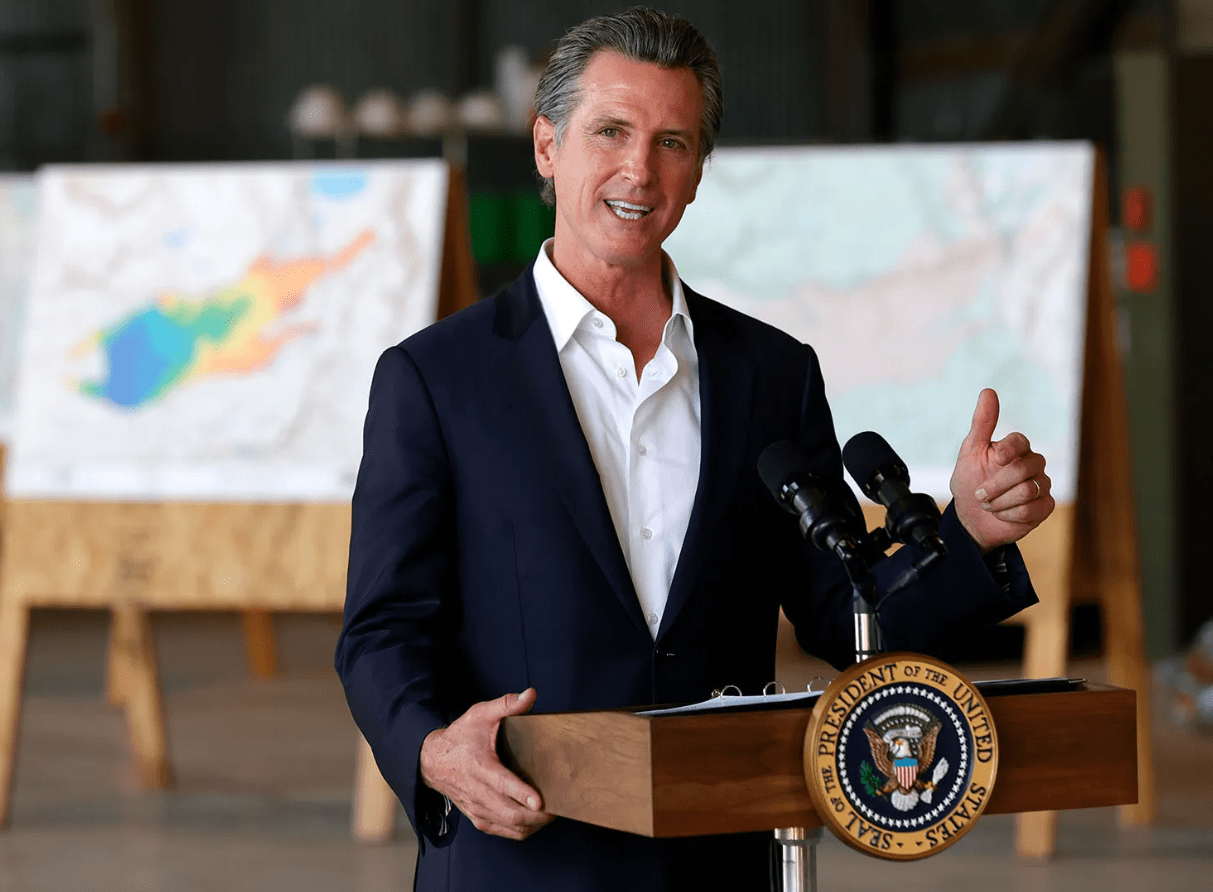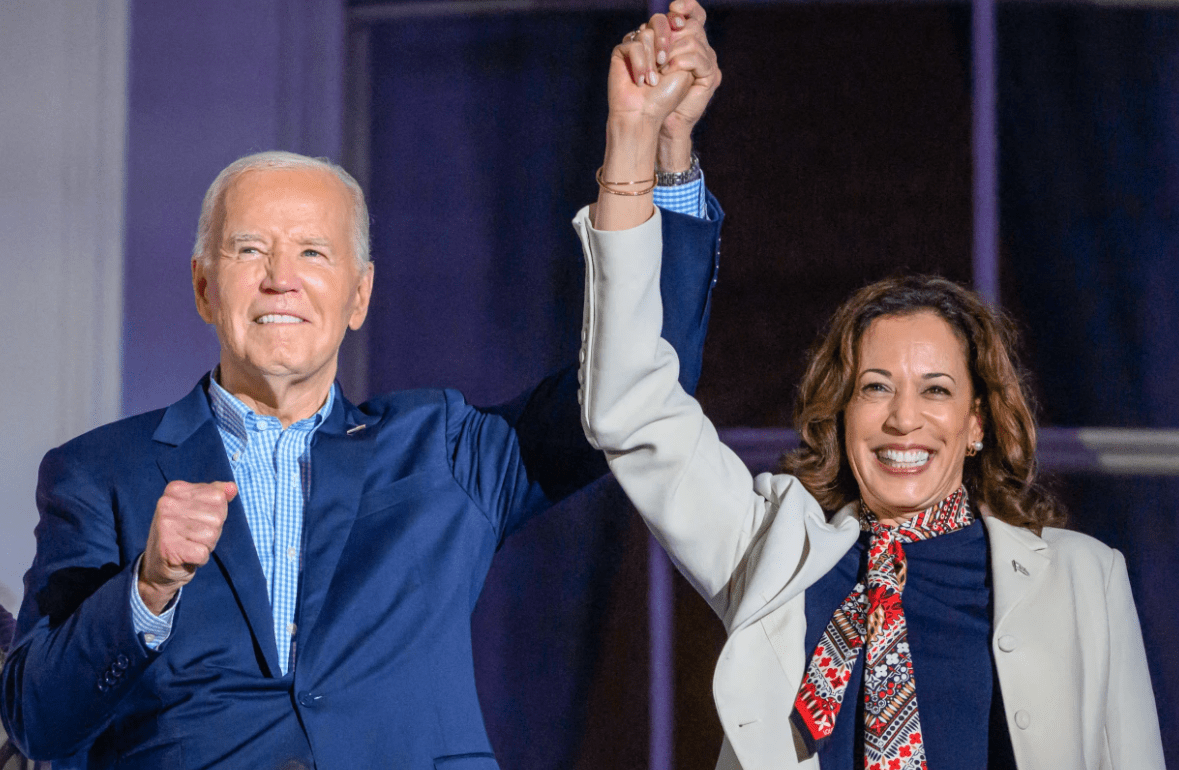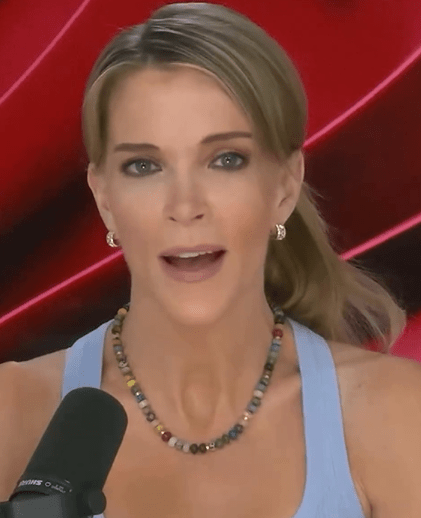Following President Joe Biden’s unexpected withdrawal from the 2024 presidential race, speculation is mounting regarding who will emerge as the Democratic nominee.
Despite Biden’s endorsement of Vice President Kamala Harris, California Governor Gavin Newsom has quickly become a favourite potential pick.
Newsom, known for his progressive policies and strong leadership during the COVID-19 pandemic, has garnered significant support within the party. His high-profile role in one of the largest states and his national recognition make him a formidable contender.
Political analysts suggest that Newsom’s ability to energise the base and appeal to a broad spectrum of voters positions him well for the nomination.

However, Harris remains a strong candidate. With her extensive experience as vice president and her previous presidential campaign, she has a robust political network and considerable support.
Harris, with Biden’s endorsement, emphasised her commitment to earning the nomination and uniting the Democratic Party.
President Biden has been an extraordinary, history-making president — a leader who has fought hard for working people and delivered astonishing results for all Americans. He will go down in history as one of the most impactful and selfless presidents.
Thank you, @JoeBiden. https://t.co/HMUMEB1fTl
— Gavin Newsom (@GavinNewsom) July 21, 2024
Another notable contender is Stacey Abrams, who has gained national attention for her efforts in voter rights advocacy and her role in flipping Georgia blue in the 2020 election. Abrams’ grassroots activism and ability to mobilise voters of colour could prove pivotal in a national campaign.
Transportation Secretary Pete Buttigieg, a rising star in the party, is also a potential candidate. Buttigieg’s successful presidential campaign in 2020 and his subsequent role in the Biden administration have increased his visibility and credibility. His appeal to younger voters and his centrist policies could attract a broad coalition of support.

Senator Amy Klobuchar, known for her pragmatic approach and Midwestern appeal, is another potential nominee. Klobuchar’s extensive experience in the Senate and her reputation for bipartisanship could make her a strong candidate in a general election.
As the Democratic National Committee prepares for a transparent and orderly nomination process, the party is poised for a dynamic and competitive primary season. With a diverse field of candidates, Democrats aim to unite and present a formidable challenge to the Republican nominee, former President Donald Trump. The coming weeks will be crucial as the party coalesces around a candidate capable of leading the charge to retain the White House.
“I’m honoured to have the President’s endorsement,” Harris wrote on Twitter/X on Sunday, emphasising her commitment to earning the nomination and uniting the Democratic Party.

Another notable contender is Stacey Abrams, who has gained national attention for her efforts in voter rights advocacy and her role in flipping Georgia blue in the 2020 election. Abrams’ grassroots activism and ability to mobilise voters of colour could prove pivotal in a national campaign.
Transportation Secretary Pete Buttigieg, a rising star in the party, is also a potential candidate. Buttigieg’s successful presidential campaign in 2020 and his subsequent role in the Biden administration have increased his visibility and credibility. His appeal to younger voters and his centrist policies could attract a broad coalition of support.
Senator Amy Klobuchar, known for her pragmatic approach and Midwestern appeal, is another potential nominee. Klobuchar’s extensive experience in the Senate and her reputation for bipartisanship could make her a strong candidate in a general election.
As the Democratic National Committee prepares for a transparent and orderly nomination process, the party is poised for a dynamic and competitive primary season. With a diverse field of candidates, Democrats aim to unite and present a formidable challenge to the Republican nominee, former President Donald Trump. The coming weeks will be crucial as the party coalesces around a candidate capable of leading the charge to retain the White House.
On behalf of the American people, I thank Joe Biden for his extraordinary leadership as President of the United States and for his decades of service to our country.
I am honored to have the President’s endorsement and my intention is to earn and win this nomination.
— Kamala Harris (@KamalaHarris) July 21, 2024
Gavin Newsom
California Governor Gavin Newsom, who won a second term during the midterms, has been tipped as a favourite to replace President Biden.
He made headlines last year by paying for billboards in conservative states like Texas and Indiana, advertising that abortion is still legal in California.
Newsom is less disliked than Biden and Harris but is still polling in the single digits, according to the latest data. This may be explained by his slightly lower name recognition among voters. Data from the January Granite State Poll in New Hampshire shows that some voters feel they do not know enough about him to form an opinion yet.
Asked after the debate if he was considering running to replace Biden, Newsom said: “Our nominee is Joe Biden – I’m looking forward to voting for him in November.”
Kamala Harris
As the current vice president, Kamala Harris would appear to be the obvious second choice if Biden decides not to run. However, much like the president, she has performed poorly in approval ratings, with a negative approval rating of 60% in mid-June.
While a vice president’s approval ratings have historically been tied to those of the president, Harris would have to find a balance between setting herself apart from Biden and not diminishing the administration’s efforts.
Harris fiercely defended Biden after the debate, saying: “People can argue about style points, but ultimately this election … has to be about substance. And the contrast is clear.”
Stacey Abrams When Georgia flipped blue in 2020, many credited Stacey Abrams for the success. The former minority leader of the Georgia House of Representatives was a prominent campaigner for Democrats ahead of the 2020 election.
However, despite this success in the South being attributed to her, Abrams has a challenging electoral record. She stood for governor in Georgia in 2018 and 2022 and lost both times, which could cast doubts on her electability within the party and among the voting public.
Pete Buttigieg Pete Buttigieg transitioned from local to national politics within a few months. The former mayor of South Bend, Indiana, ran for the Democratic nomination for president in 2020 and won the Iowa caucuses but dropped out of the race shortly thereafter. When Biden took office, he appointed Buttigieg as transport secretary, and since his move to Washington, Buttigieg has continued to make a name for himself.
Within the Democratic Party, he enjoys much popularity. He was “the most requested surrogate on the campaign trail” ahead of the 2022 midterms. If elected, Buttigieg would be the youngest ever president and the first openly gay man to hold the office.
But Buttigieg may face challenges on the campaign trail as he has previously had significant difficulties securing support from minority voter groups.
Amy Klobuchar The first woman elected to represent Minnesota in the US Senate, Amy Klobuchar has been on the national political stage since 2007. During the confirmation hearings for Supreme Court Associate Justice Brett Kavanaugh, she made headlines and drew praise for her sharp line of questioning. Klobuchar previously ran for president in 2020 and supported Biden after exiting the race.
She is seen as a moderate, someone who could unite both sides of the party and might be a close alternative to Biden. However, she has lower name recognition than her possible opponents within the party and had difficulties generating excitement for her campaign in 2020, an issue that could hinder her again.

